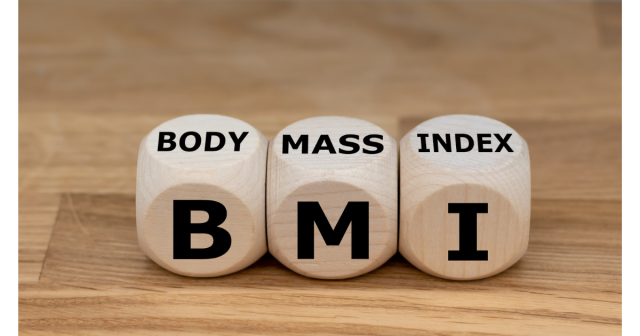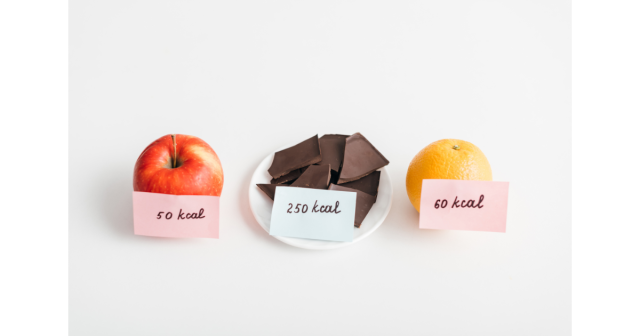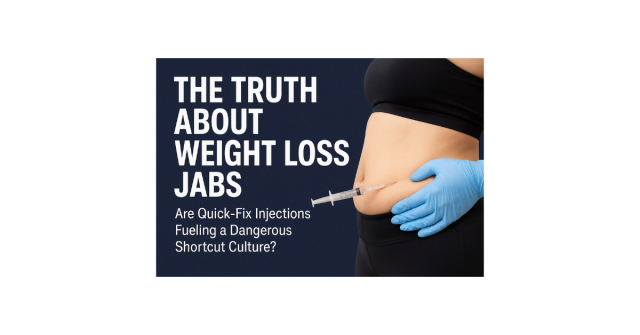Should we be counting calories?

You won’t be alone if you put on a few kilos during the winter. After all, when it’s dark and cold, stodgy food is definitely more comforting than a crunchy salad and it’s easy to cover any weight gain when you’re wearing lots of layers to keep warm. When it’s time to put the brakes on, rather than buy bigger clothes, you’ll need to change your eating habits. If this applies to you, perhaps you’ve started the New Year on a restrictive ‘crash diet’? If so, I’m guessing it was hard to sustain and has now fallen by the wayside, so I now give you my thoughts about alternative solutions.
BMI
Healthy bodies come in all shapes and sizes and I normally prefer to focus on how to eat well rather than weight-reduction. However, it’s important to keep your BMI (Body Mass Index) to between 18 and 24 to lower your risk of developing heart disease, diabetes and certain cancers and there are times when it’s necessary to get back to what the NHS calls a ‘healthy weight’(1). Not only is this likely to make you feel better in yourself but, in the long-term, managing your weight will help you live a long, disease-free life.

It’s been nearly two years since it became mandatory for the larger restaurants to include calorie counts on their menus (2) and with such Government endorsement I’m wondering whether calorie counting is an effective way to manage weight. Given that there are many hundreds of eating plans to choose from, counting calories might seem out-dated, but it still holds true that if you want to lose weight you need to burn more calories than you consume, and so it is still a consideration.
What is a calorie?
A calorie is a measure of the amount of energy a food contains or that our bodies are using either during exercise or just to maintain bodily functions. Specifically, one calorie is the energy needed to increase the temperature of 1g of water by 1ºC and is a tiny amount. Confusingly any mention of calories usually means kilocalories (kcal), which are 1,000 of the tiny calories (1kg of water by 1ºC). It is kcals which are shown on food labels and by which our daily energy needs are measured. Once you have estimated your energy requirement you can decide how many calories less than this you will consume to lose weight. There is evidence that a deficit of around 600 kcals per day will work, but if this leaves you very hungry then a smaller deficit might be better, though weight loss will be slower.(3)
How many calories you need is dependent on your age, gender, weight, height and how active you are. While the general NHS view is that the average man needs 2,500 kcal a day and the average woman needs 2,000 kcal a day (4), there are many online tools available for you to estimate your daily requirement. My own website features one that will calculate your optimal calories, give your BMI and target calories for whether you want to maintain, lose or gain weight.

History of the calorie.
Interestingly the concept of calories first came about during the mid 19th Century when heat and energy in steam engines was studied. By the beginning of the 20th Century scientists had transferred this knowledge to measure the heat/energy value of foods, at first with livestock and later for humans (5). Counting calories was then usefully deployed by the American Food Administration during the First World War to conserve food. They prescribed how many calories people could eat and said that anyone consuming more than this was undermining the war effort. Food was regarded as the fuel used by the body to build and repair tissue and provide energy for daily tasks, not as something to be enjoyed. New York City restaurants patriotically featured calorie counts on their menus to support the initiative.
Before the First World War ‘plumpness’ was associated with beauty and wealth, while being thin implied that you were ill or living in poverty. However, post war there was a seismic change in attitude and the use of calorie counting; it had become fashionable, if you were female and of a certain class, to become a ‘flapper girl’ and to be the desired body shape you had to attain a flat chest and narrow hips …. This is where the calorie deficient diet came in. The resulting sylph-like body was heralded as the epitome of beauty. ‘Thin was In’ and the aspirational classes used what they now knew about calories to lose weight. Being thin in the 1920’s became a sign of social status because it showed you could reject food even though you were surrounded by it. A frail and willowy appearance would set you apart from the work-weary working class woman. Critics at the time however said that women jeopardised their physical and mental well-being by such dieting and looked haggard and dull-eyed. (5)
Counting calories was also a big part of the slimming scene in the 1970’s and 80’s when magazines promoted a preferred female body shape. It was a sign of the times that women, rather than men, undoubtedly felt under pressure to be slim and many joined slimming clubs to help them stick to their goals. ‘Fad’ diets where you were restricted to eating things like cabbage soup, pineapple or cottage cheese (6) were very popular, along with leg warmers, aerobics and Jane Fonda workouts. Yes, you would lose weight as you basically starved yourself on as few calories as possible, but of course this wasn’t sustainable and people would unhealthily ‘yo-yo’ between gaining and losing weight (7).
It’s hard to believe that Sports Nutrition (8) as a specialised area to support athletic performance didn’t emerge until the 1980’s and before that, even in elite sports programmes, the approach to healthy eating had been blinkered. With the knowledge of nutrition we have today, it’s clear that weight management is far more complex than just ‘energy in’ versus ‘energy out’ and whether calorie counting should still play a part is a controversial area for discussion. We do know that it works biologically and there is research that suggests calorie counting is an effective way to lose weight. In a study published by the Journal of Obesity & Metabolic Syndrome in March 2021 researchers found that “reducing daily calorie intake is the most important factor for weight loss.” In addition an article published in August 2017 in the Journal of Diabetes Research concluded that dietary tracking was an “important component of successful weight loss.” (9)
Quality over quantity?
However the reality of monitoring how many calories you’ve consumed alongside your ever-changing activity levels is time-consuming and complex – even with the help of the many diet-tracking apps, like Noom and MyFitnessPal, along with smartwatches and other wearable devices that track calories in and out. As senior dietician Victoria Taylor says, “A focus on calories alone doesn’t take into account the overall quality of the diet. The energy you get from 100 kcals is the same whether it’s from half an avocado or half a bar of chocolate, but the difference is in their nutritional content.” (10)
Top epidemiologist and dietician Tim Spector (11) calls calorie counting “complete nonsense” and counters the advice given by the NHS that we should be aware of our calorie intake and energy requirements. He says it makes your body slow down its metabolism then rebound back to your baseline weight or even above it and advises that people should focus on the quality of their food to lose weight rather than obsessing over calorie intake. Spector alleges that counting calories is “virtually impossible” as the information given on food labels can be inaccurate and in restaurants the portion sizes can vary. He recommends that people avoid ultra-processed foods (UPFs), which often contain chemical additives, sugar and fat and tend to make people more hungry, and instead eat a diversity of different whole foods in their pure unaltered form, such as nuts, seeds, fruit and vegetables – something that I would agree with.
On a cautionary note, I should add that calorie counting can become addictive and may increase the risk of disordered eating. A study published in Eating and Weight Disorders in August 2018 (12) linked calorie counting to an increase in the numbers of college students having eating disorders. The trouble is that it focuses on numbers instead of how nutritious or satisfying a food is and can be distressing for anyone vulnerable to obsessive behaviour.
Calorie counting rules.
On the plus side, calorie counting can work for some people and will act as a guide to:

- Help you identify which eating patterns lead to successful weight loss.
- Create an awareness of the approximate amount of calories consumed and compare this to when you’re trying to reduce your intake.
- Keep track of your behaviour and the choices you make at certain times.
Whether you choose to calorie count or not, I advise you to:
- Choose food from all the main food groups and in its most natural form.
- Get as organised as possible with your meal planning and make sure that you have healthy choices available to you when you are hungry.
- Having a full fruit bowl on your kitchen counter and small bags of dried fruit or nuts to snack on saves you searching out anything less wholesome.
- Remember that losing a few kilos has to be a long-term objective that can be achieved through establishing healthy choices as part of your everyday diet.
- Calculate your body mass index.
- New calorie labelling rules come into force to improve nation’s health.
- Counting calories: will it help you lose weight?
- Understanding calories.
- Counting calories: science history.
- The worst fad diets from the 70’s and 80’s.
- 10 solid reasons why yo-yo dieting is bad for you.
- Origin and history of sports nutrition
- The effect of adherence to dietary tracking on weight loss.
- Calorie counting 101: Does it aid weight loss, how safe is it, and which way is best?
- Calorie counting is pointless.
- Helpful or harmful? The comparative value of self-weighing and calorie counting versus intuitive eating on the eating disorder symptomology of college students.




